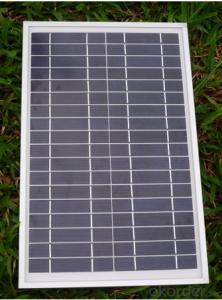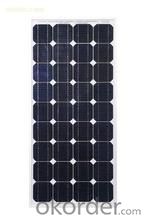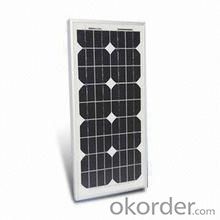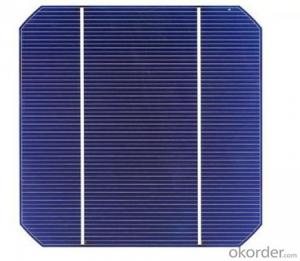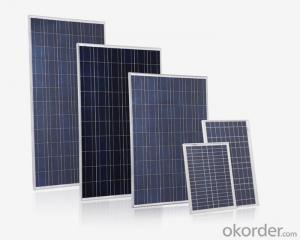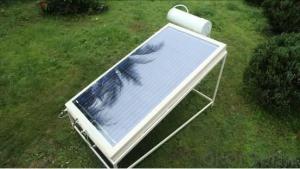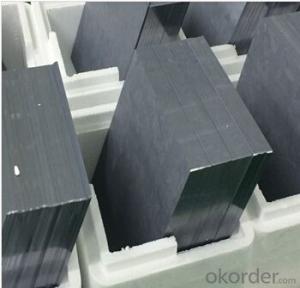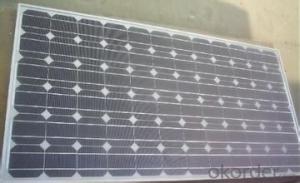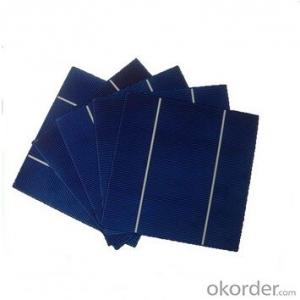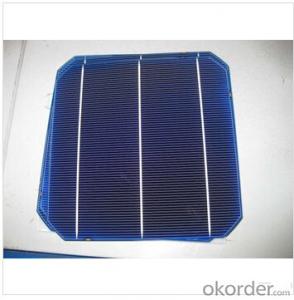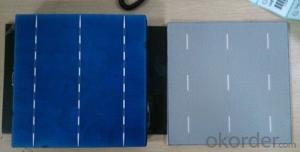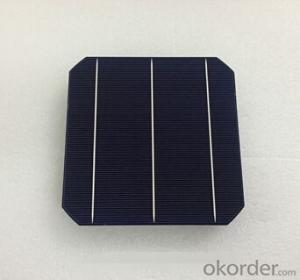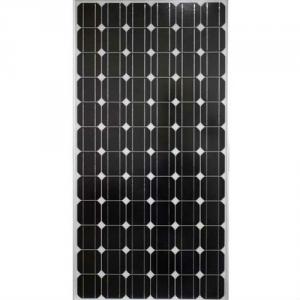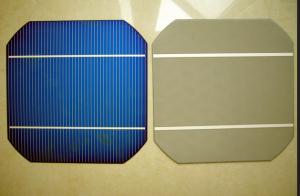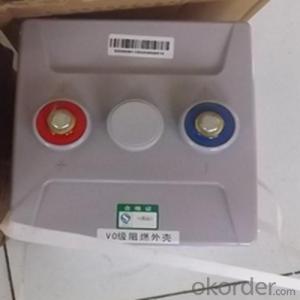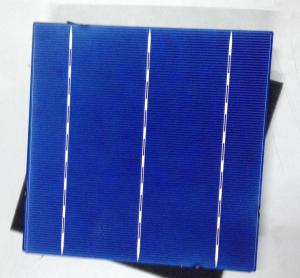6 X 6 Solar Cells 156mm*156mm Monocrystalline Silicon Modules with CE Certificate
- Loading Port:
- Tianjin
- Payment Terms:
- TT OR LC
- Min Order Qty:
- 1000 watt
- Supply Capability:
- 10000 watt/month
OKorder Service Pledge
OKorder Financial Service
You Might Also Like
Introduction
2015 Hot Sale High Efficiency156mm*156mm Monocrystalline silicon modules with TUV CE certificate.
Feather
1.High conversion efficiencies resulting in superior power output performance.
2.Outstanding power output even in low light or high temperature conditions
3.Optimized design for ease of soldering and lamination
characteristic
High effcient with stable quality and competitive price
High output with stable system
20W~25W output under standard conditions
Output Voltage 18V, suitable for 12V power system
Can fully charge up a 12V 7.2AH battery within 4~6 hours
Poly-crystallize Solar Cells from Taiwan or Germany
Product life over 25 years
Resistance to fluctuations of temperature, humidity and strong wind
Manufactured under IEC61215 Solar Photovoltaic Panel requirements
Parameter
size
156mm×156mm±0.5mm
thickness
180µm±20µm and 200µm±20µm
Front design
5 mm bus bars (silver),blue anti-reflection coating(silicon nitride)
Back design
0 mm wide segment soldering pads(silver),back surface field (aluminium)
voc ratio
-0.331%/K
scc
+0.042%/K
output ratio
-0.41%/K
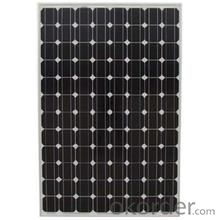
- Q: 24V 200W solar cells can charge 12V battery?
- Please be assured that bold direct charge to ensure that nothing is ok. If the heart is not a few words to find a 0-20 amps ammeter to measure the charging current, Ye Hao master the charging time.
- Q: Can solar cells be used in schools or educational institutions?
- Yes, solar cells can definitely be used in schools or educational institutions. They provide a practical and hands-on way to teach students about renewable energy sources, sustainability, and environmental stewardship. Installing solar cells in schools can also help reduce electricity costs and promote energy efficiency, making it a beneficial investment for educational institutions.
- Q: Can solar cells be used to power off-grid cabins or homes?
- Yes, solar cells can definitely be used to power off-grid cabins or homes. Solar panels can convert sunlight into electricity, which can then be stored in batteries for use during the night or when the sun is not shining. This renewable energy source provides a sustainable and reliable power solution for off-grid living, reducing dependence on traditional energy sources.
- Q: Can solar cells be used for powering water pumps?
- Yes, solar cells can be used for powering water pumps. Solar-powered water pumps utilize the energy from the sun captured by solar cells to generate electricity, which then powers the water pump. This sustainable and environmentally-friendly solution is often used in remote areas where there is no access to electricity grids or where using traditional fuel-powered pumps is costly or impractical.
- Q: What is the difference between solar cells and solar panels?
- Solar cells and solar panels are both components used in harnessing solar energy, but they have distinct differences. A solar cell refers to a single unit that converts sunlight directly into electricity through the photovoltaic effect. On the other hand, a solar panel is composed of multiple interconnected solar cells and serves as a larger unit that generates a higher amount of electricity. In summary, solar cells are individual units, while solar panels are a collection of these cells working together to generate more power.
- Q: How do solar cells impact local economies?
- Solar cells can have a positive impact on local economies in several ways. Firstly, the installation and maintenance of solar panels create job opportunities, boosting employment rates and income levels in the local community. Additionally, solar energy reduces dependence on imported fossil fuels, which in turn decreases energy costs for businesses and residents, leading to increased savings and disposable income. Moreover, solar power can attract investments and promote the development of local solar industries, thus stimulating economic growth and innovation. Overall, solar cells contribute to a more sustainable and prosperous economy at the local level.
- Q: How do solar cells perform in areas with extreme temperature fluctuations?
- Solar cells can be affected by extreme temperature fluctuations. High temperatures can cause solar cells to become less efficient and generate less electricity, while very low temperatures can reduce their ability to function optimally. However, advancements in technology and the use of materials that are more resistant to temperature changes have improved the performance of solar cells in areas with extreme temperature fluctuations. Additionally, proper installation and maintenance can help mitigate the impact of temperature fluctuations on solar cell performance.
- Q: Where can I buy solar cells on sale but still good quality ?
- We are a solar cell manufacturer based in China, and we sell very good quality solar cells.
- Q: Can solar cells be used to power water pumps or irrigation systems?
- Yes, solar cells can be used to power water pumps or irrigation systems. Solar panels convert sunlight into electricity, which can then be used to power water pumps and irrigation systems, providing a sustainable and renewable source of energy.
- Q: Can solar cells be used in shopping malls?
- Yes, solar cells can definitely be used in shopping malls. They are a sustainable and environmentally-friendly source of energy that can be integrated into the mall's infrastructure to reduce electricity costs and carbon footprint.
Send your message to us
6 X 6 Solar Cells 156mm*156mm Monocrystalline Silicon Modules with CE Certificate
- Loading Port:
- Tianjin
- Payment Terms:
- TT OR LC
- Min Order Qty:
- 1000 watt
- Supply Capability:
- 10000 watt/month
OKorder Service Pledge
OKorder Financial Service
Similar products
Hot products
Hot Searches
Related keywords
